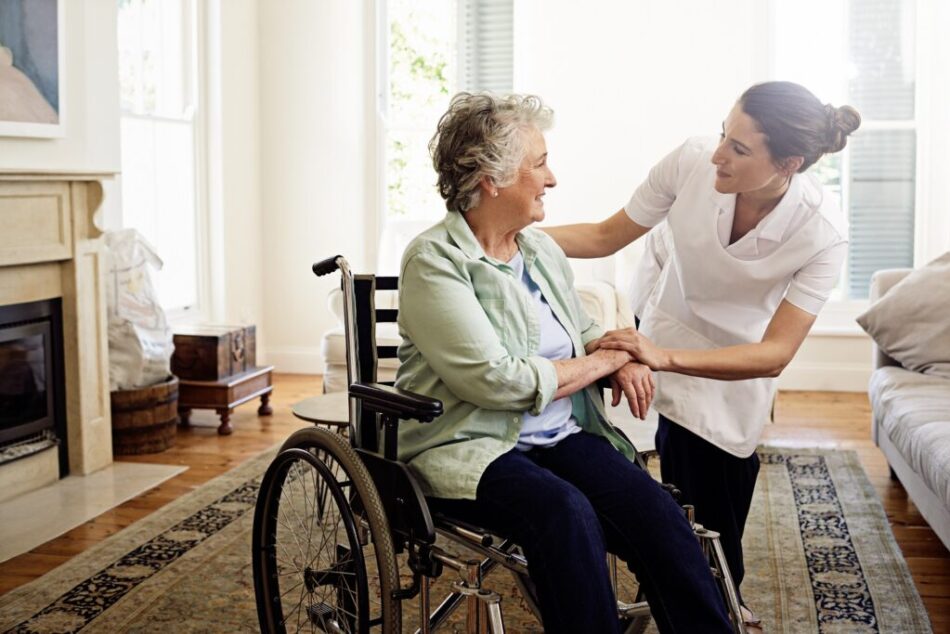Caring for someone at home is a rewarding but demanding responsibility. Caregivers often find themselves feeling tired, drained, or overwhelmed due to the continuous demands of their role. Maintaining energy levels is essential not only for their well-being but also for providing consistent and compassionate care. By focusing on a combination of physical, mental, and emotional strategies, caregivers can improve their energy and sustain their caregiving efforts more effectively.
Understanding Energy Needs
Caregivers at home Dubai often underestimate the impact that constant attention, physical tasks, and emotional involvement have on their bodies and minds. Recognizing that energy depletion is a natural response to caregiving responsibilities is the first step in managing it. Understanding personal energy patterns can help caregivers schedule demanding tasks when they feel most alert and allow periods of rest when energy dips.
Prioritizing Rest and Sleep
Quality rest is foundational for maintaining energy. Caregivers should aim to establish a regular sleep routine even amidst busy schedules. Creating a calm, comfortable sleep environment and limiting disruptions can improve sleep quality. Short, restorative naps during the day can also replenish energy, particularly after periods of intense caregiving activity.
Balanced and Nourishing Eating
Energy levels are closely tied to nutrition. Caregivers benefit from eating balanced meals that provide sustained energy throughout the day. Meals that combine protein, healthy carbohydrates, and fruits or vegetables support steady energy levels. Staying hydrated is equally important, as dehydration can cause fatigue and reduce focus. Small, frequent meals and snacks can help maintain consistent energy without overwhelming the digestive system.
Regular Physical Activity
Incorporating movement into daily routines can significantly boost energy. Gentle exercises such as stretching, walking, or yoga can help relieve tension, improve circulation, and enhance overall stamina. Even short bouts of activity throughout the day, such as stretching during caregiving breaks or taking a brief walk outdoors, can refresh both body and mind. Physical activity also promotes better sleep, which in turn supports sustained energy.
Mindful Breathing and Relaxation Techniques
Mental and emotional energy are just as important as physical energy. Caregivers can practice mindful breathing, meditation, or simple relaxation exercises to recharge their minds. Even a few minutes of deep, focused breathing can reduce stress and restore a sense of calm, improving overall energy levels. Incorporating relaxation breaks into daily routines can make a noticeable difference in alertness and mood.
Planning and Organization
Efficient planning and organization help reduce unnecessary energy expenditure. Caregivers who structure their day with clear priorities and realistic goals can avoid feeling overwhelmed. Breaking tasks into manageable steps, preparing in advance, and using checklists can minimize wasted effort and keep energy focused on essential activities. A well-organized schedule also allows for designated periods of rest, ensuring energy is replenished.
Seeking Social Support
Emotional energy is influenced by social connections. Caregivers benefit from sharing experiences and receiving support from friends, family, or caregiver groups. Talking through challenges and receiving encouragement can provide mental relief and boost emotional resilience. Social support helps caregivers maintain a positive outlook, which directly contributes to higher energy levels and motivation.
Engaging in Meaningful Activities
Participating in activities that bring joy or a sense of accomplishment can invigorate caregivers. Hobbies, creative projects, or spending time in nature provide mental and emotional energy that carries over into caregiving duties. Finding moments for personal fulfillment prevents burnout and replenishes enthusiasm for daily responsibilities.
Setting Boundaries and Saying No
Protecting energy requires clear boundaries. Caregivers who recognize their limits and avoid overcommitting themselves preserve both physical and emotional resources. Learning to delegate tasks or accept help without guilt allows energy to be focused on essential caregiving responsibilities rather than spreading oneself too thin.
Mindset and Positive Self-Talk
Energy can be influenced by mental outlook. Maintaining a positive and realistic mindset helps caregivers conserve emotional and mental resources. Using affirmations, celebrating small achievements, and reframing challenges as opportunities to grow can increase motivation and resilience. Positive self-talk strengthens mental energy, making daily tasks feel less exhausting.
Incorporating Short Breaks
Frequent short breaks can prevent energy from depleting too quickly. Even a few minutes of stepping away from caregiving tasks, stretching, or practicing a calming exercise can restore focus and vitality. Scheduled breaks also improve productivity and reduce feelings of burnout, ensuring caregivers can sustain energy over longer periods.
FAQs
How can caregivers recognize early signs of low energy?
Caregivers may notice irritability, lack of focus, physical fatigue, or decreased motivation. Recognizing these signs early allows for timely rest, nutrition, or stress-relief measures before energy dips severely.
What is the most effective way to maintain energy throughout the day?
Combining quality rest, balanced meals, short movement breaks, and mental relaxation practices creates a comprehensive approach that supports sustained energy.
How can caregivers balance physical and emotional energy?
Integrating daily routines with both physical activity and mental relaxation practices ensures energy is supported holistically. Planning, breaks, and social support contribute to maintaining balance.
Are brief periods of rest during caregiving beneficial?
Yes, even short breaks help restore energy and focus, prevent burnout, and enhance overall caregiving performance.
Can mindset affect energy levels?
Absolutely. Maintaining a positive outlook and practicing encouraging self-talk strengthens emotional and mental energy, making physical caregiving less taxing.
By understanding personal energy patterns and adopting strategies that nurture physical, emotional, and mental well-being, Caregivers at home in Dubai can improve their overall energy. Implementing consistent routines, taking restorative breaks, staying nourished, engaging in movement, and prioritizing mental wellness allows caregivers to sustain their dedication while maintaining a sense of balance and vitality. Energy management is not just a benefit for the caregiver but also enhances the quality of care provided, ensuring both caregiver and care recipient thrive.









